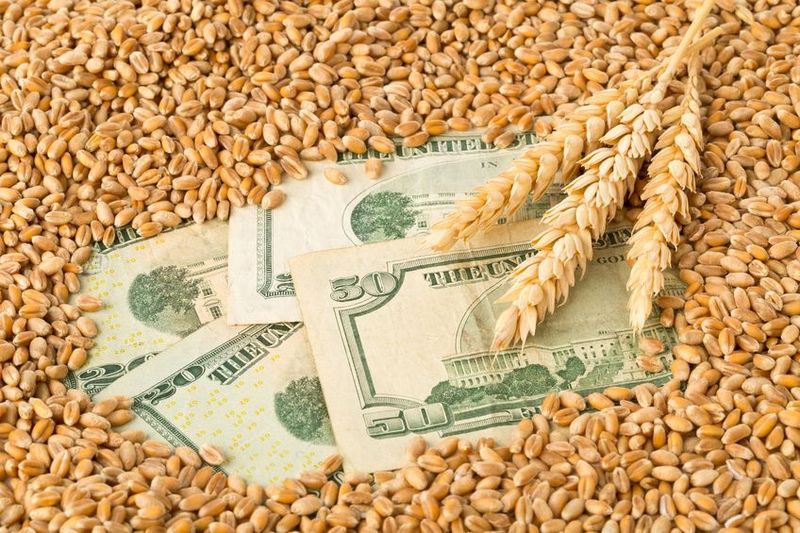Wheat prices soar due to Ukrainian invasion

Food insecurity and commodity prices are on the minds of farmers due to the war in Ukraine, say rural experts.
During the Rural Municipalities of Alberta spring meeting, president Paul McLauchlin said much of the talk was around Ukrainian farmers not being able to produce wheat, and what the repercussions will be globally.
“[Albertans] are also involved in food security and that’s one of the conversations that really came out of this conference, was really talking about food security,” McLauchlin said.
Russia and Ukraine collective produce nearly one third of the wheat on the planet, and McLauchlin said those sources will come off of the global trade market due to the war, which will impact food security across the world.
“Ukrainian farmers, if they can even get out there because they’re probably going to get sniped or bombed, they are just not going to be able to plan. And they are a huge export wheat country and they’re going to be right off the system,” McLauchlin said.
On top of a wheat shortage, McLauchlin said there will also be spikes in inputs, such as fertilizer, because Russia is one of the main producers and exporters of fertilizer.
“Fertilizer is easily five times what it was a year ago, so your inputs are insane right now,” McLauchlin said.
But the rural expert said commodity prices are going to be high due to the shortages and costs of inputs.
“You are going to have the highest commodity prices in known history, to be quite honest,” McLaughlin said.
Ward Toma, president of the Alberta Canola Producers, said the uncertainty in Russia and Ukraine is causing uncertainty in the markets and the world doesn’t really know if crops are getting into the ground right now.
“Commodities like this tend to find a way out when they need it, although it might be more expensive,” Toma said.
“It’s the uncertainty I think [that] is causing supporting prices, because people just don’t know.”
It is good news for farmers in Alberta, Toma said, because buyers are offering higher prices for provincial commodities.
Ukraine supplies oilseed and cereal products to the world, and when you take an entire country out of the global food supply equation, it will take time for the markets to rebalance, Toma said.
“People that might have bought that product have to find alternative sources and that’s probably what will happen, is that that product from that region will become too expensive and people will go out and look for cheaper sources,” Toma said.
The war in Ukraine is causing a lot of fluctuations and uncertainty in the global commodity markets, and peace talks between the two countries earlier this week caused both oil prices and wheat prices to drop with the hopes of a ceasefire.
The war shut off access to cheaper wheat usually exported from Ukraine and countries in the Middle East, who are the primary importers of the product, have been struggling with surging prices of bread and wheat.
According to AgFLow, a crop data company, in the first two weeks of March, only 73 agriculture vessels departed from Russian ports, down from around 220 vessels over the same period last year.
Canadian farms produce around 12 per cent of the world’s wheat, exporting to around 70 different countries, however it is a more expensive product as it is a higher quality.
Sandra McCardell, an assistant deputy minister at Global Affairs Canada, told a Senate committee in early March that there will be “a wide range of fallout” from Russia’s invasion of Ukraine, which will include things such as food shortages in developing nations.
“We certainly are looking at contingencies. UN agencies are looking at contingencies,” McCardell said in the committee meeting.
“This is not going to be just about Ukraine and Russia, and we do need absolutely to be ready.”
Read also
Wheat in Southern Brazil Impacted by Dry Weather and Frosts
Oilseed Industry. Leaders and Strategies in the Times of a Great Change
Black Sea & Danube Region: Oilseed and Vegoil Markets Within Ongoing Transfor...
Serbia. The drought will cause extremely high losses for farmers this year
2023/24 Safrinha Corn in Brazil 91% Harvested
Write to us
Our manager will contact you soon



